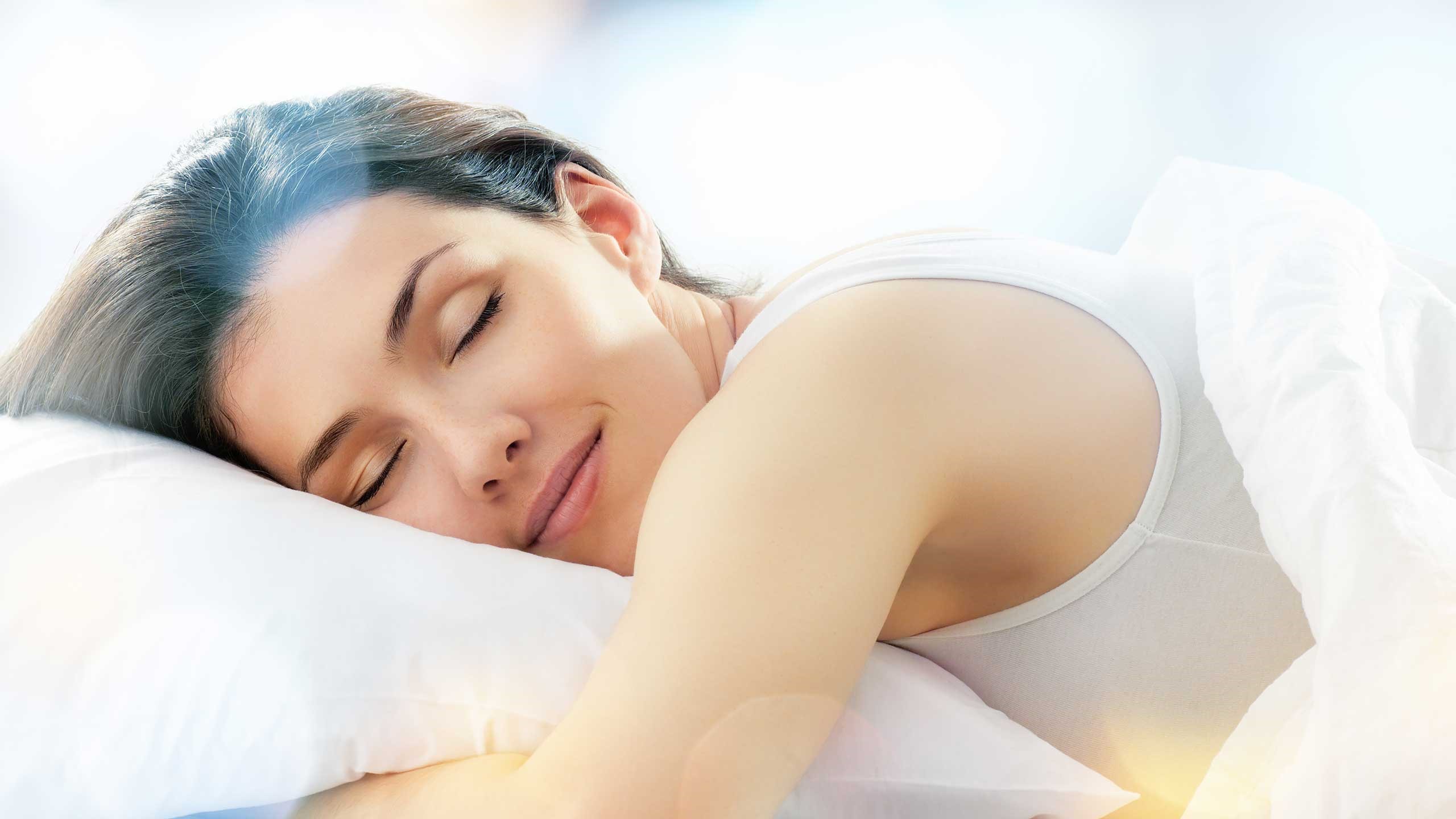
How To Sleep Faster And Better
Introduction:
Sleep is essential for our overall well-being, allowing our bodies and minds to rest and rejuvenate. However, many individuals struggle with falling asleep quickly and achieving a restful night’s sleep. In this comprehensive guide, we will explore effective strategies and techniques to help you sleep faster and better. By implementing these practices, you can optimize your sleep routine and improve the quality and duration of your sleep.
Section 1:
Creating a Sleep-Friendly Environment (400 words)
1.1 Comfortable Sleep Environment: Ensure that your bedroom is conducive to sleep. Choose a supportive mattress and comfortable pillows, and consider using breathable bedding materials. Adjust the room temperature and humidity levels to create an optimal sleep environment
1.2 Darkness and Noise Reduction: Minimize external disruptions by using blackout curtains, earplugs, or a white noise machine. These measures can block out unwanted light and noise, promoting a more peaceful and restful sleep experience.
1.3 Decluttering and Organizing: Keep your bedroom clean, tidy, and free from clutter. A calm and organized environment can contribute to a sense of relaxation and tranquility, making it easier to fall asleep faster.
Section 2:
Establishing a Relaxing Bedtime Routine (500 words)
2.1 Consistent Sleep Schedule: Set a regular sleep schedule by going to bed and waking up at the same time each day, even on weekends. Consistency helps regulate your body’s internal clock, promoting better sleep quality.
2.2 Relaxation Techniques: Engage in relaxing activities before bedtime to signal to your body that it’s time to sleep. These may include reading a book, practicing deep breathing exercises, taking a warm bath, or practicing gentle stretching or yoga.
2.3 Avoiding Stimulating Activities: Minimize exposure to stimulating activities close to bedtime, such as intense exercise, engaging in heated discussions, or working on mentally demanding tasks. These activities can make it harder to unwind and fall asleep quickly.
2.4 Digital Detox: Disconnect from electronic devices at least an hour before bedtime. The blue light emitted by screens can disrupt the production of melatonin, a hormone that regulates sleep. Instead, engage in screen-free activities that promote relaxation and prepare your mind for sleep.
Section 3:
Promoting Relaxation and Stress Reduction (500 words)
3.1 Stress Management Techniques: Practice stress management techniques, such as meditation, mindfulness, or journaling, to help calm your mind and relax your body before sleep. These techniques can reduce anxiety and promote a sense of well-being, facilitating faster and better sleep.
3.2 Progressive Muscle Relaxation (PMR): PMR involves tensing and then releasing each muscle group in your body, promoting physical relaxation and easing tension. Incorporate PMR exercises into your bedtime routine to encourage deep relaxation and prepare your body for sleep.
3.3 Aromatherapy: Experiment with calming essential oils such as lavender, chamomile, or bergamot. Use them in a diffuser, apply topically, or add a few drops to a warm bath. The soothing scents can help create a calming atmosphere conducive to sleep.
3.4 Herbal Remedies: Consider herbal supplements known for their sleep-inducing properties, such as valerian root, chamomile tea, or passionflower extract. Consult with a healthcare professional before incorporating any new herbal remedies into your sleep routine.
Section 4:
Optimizing Lifestyle Factors (400 words)
4.1 Regular Exercise: Engage in regular physical activity, preferably earlier in the day. Exercise promotes better sleep quality, reduces stress, and enhances overall well-being. However, avoid vigorous exercise close to bedtime, as it can have a stimulating effect.
4.2 Dietary Considerations: Avoid
4.2 Dietary Considerations: Avoid heavy meals and spicy or greasy foods close to bedtime, as they can cause discomfort and disrupt sleep. Instead, opt for light, balanced meals and consider incorporating sleep-promoting foods into your diet, such as foods rich in magnesium (e.g., leafy greens, nuts, and seeds) and tryptophan (e.g., turkey, dairy products, and bananas).
4.3 Caffeine and Alcohol: Limit your consumption of caffeine, especially in the afternoon and evening, as it can interfere with your ability to fall asleep. Be mindful of hidden sources of caffeine, such as certain medications or chocolate. Similarly, while alcohol may initially make you feel drowsy, it can disrupt your sleep later in the night, leading to poor sleep quality and frequent awakenings.
4.4 Nicotine: Avoid nicotine, particularly close to bedtime. Nicotine is a stimulant and can make it more challenging to fall asleep and achieve restful sleep.
Section 5:
Enhancing Sleep Environment (300 words)
5.1 Temperature and Humidity: Keep your bedroom cool and well-ventilated, as a slightly cooler temperature promotes better sleep. Adjust the humidity levels to a comfortable range, as excessive dryness or humidity can disrupt sleep.
5.2 Comfortable Bedding and Sleepwear: Choose comfortable, breathable bedding and sleepwear that suits your preferences and promotes a sense of relaxation. Consider natural fibers like cotton or bamboo for optimal comfort.
5.3 Sleep-Friendly Lighting: Create a dim and soothing environment in your bedroom before sleep. Use low-wattage bulbs or invest in adjustable lighting options, such as smart bulbs, to mimic the natural progression of light and darkness.
Section 6:
Seeking Professional Help (300 words)
6.1 Sleep Disorders: If you consistently struggle with falling asleep or have persistent sleep difficulties despite implementing these strategies, it may be necessary to consult a healthcare professional or sleep specialist. They can assess your sleep patterns, identify any underlying sleep disorders, and recommend appropriate treatments.
6.2 Cognitive Behavioral Therapy for Insomnia (CBT-I): CBT-I is a structured therapy that targets the underlying thoughts, behaviors, and habits affecting sleep. It can be highly effective in improving sleep quality and promoting healthy sleep habits. Consider seeking the guidance of a qualified therapist specializing in sleep disorders.
Conclusion:
By implementing the strategies outlined in this comprehensive guide, you can improve your ability to fall asleep faster and achieve better quality sleep. Remember, establishing a consistent sleep routine, creating a sleep-friendly environment, promoting relaxation, and adopting healthy lifestyle habits are key factors in optimizing your sleep. It may take time to find the right combination of techniques that work best for you, so be patient and persistent in your efforts. Prioritizing quality sleep is essential for your overall health and well-being, so make it a priority in your daily life. With time and practice, you can enjoy the benefits of faster, deeper, and more restorative sleep.
- The Comprehensive Guide to the Benefits of Maritime Pine Bark Extract Nootropics - October 25, 2023
- Jenni Marijuana Strain - September 8, 2023
- How Much Collagen Should You Take per Day? - July 7, 2023


